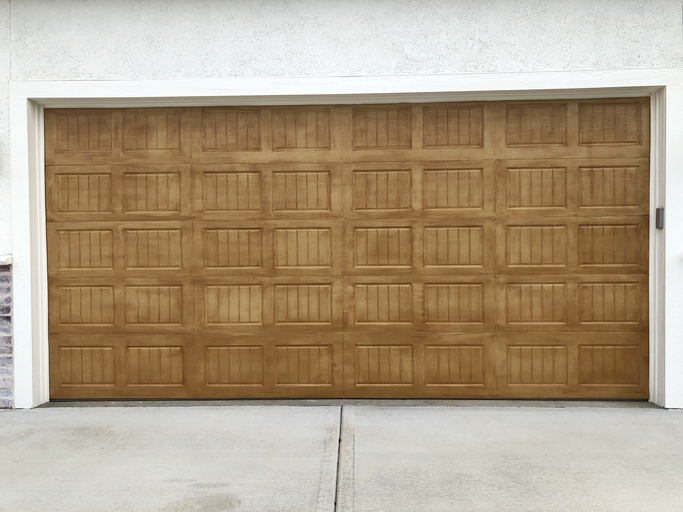Introduction
Garage door openers are designed for daily use, but even the most reliable systems develop minor problems over time. These aren’t always loud, sudden, or obvious. In many cases, the trouble starts with tiny, barely noticeable changes in performance. Homeowners often miss these early warnings until a full breakdown occurs. Mechanical wear—gradual deterioration of parts under stress—is one of the leading causes of subtle garage door opener issues. Recognizing what to listen for, feel, and observe can help catch early damage before it becomes costly.
Subtle Garage Door Opener Issues From Mechanical Wear
1. Worn Gears Can Cause Delayed or Inconsistent Movement
The internal gears inside your garage door opener motor are responsible for converting electrical energy into motion. These gears are usually made of plastic or metal and rotate constantly during every cycle. Over time, friction causes them to lose shape or develop worn teeth. As this wear increases, the opener may hesitate, jerk, or take longer to start moving the door. You may also hear light grinding or feel vibration in the opener housing. These are often early signs garage door opener failing—minor at first, but they fall under subtle garage door opener problems that continue to worsen with ongoing use.
2. Stretched Chains or Belts Impact Tension and Speed
Chain- and belt-driven openers rely on tension to keep movement smooth. The chain or belt connects the trolley to the motor, pulling the door open and letting it close under control. Mechanical wear stretches these components over time, causing sagging and delayed movement. You might notice that your garage door opens more slowly or stops midway before resuming. Stretched belts often make a quiet slipping sound, while loose chains may rattle or bounce slightly. Without regular inspection, this wear goes unnoticed until complete failure occurs.
3. Rollers and Hinges Create Resistance When Worn
Rollers guide your garage door along the tracks, while hinges allow panel movement during lifting and closing. When rollers wear down, they create drag, making the opener work harder. Worn hinges may also cause the door to jerk or stick slightly during movement. These aren’t dramatic problems—just slower operation, small pauses, or uneven travel. However, the extra strain impacts opener longevity. These mechanical issues are classic examples of small-scale opener irregularities that mask deeper wear in both the door and motor systems.
4. Track Misalignment Increases Friction on the Motor
When the tracks holding your garage door shift out of alignment, they make the door harder to move. Instead of gliding easily, the door creates uneven pressure on the motor and trolley system. Mechanical wear on the track brackets, mounting points, or supporting hardware can cause this misalignment. The opener might respond more slowly or struggle during certain parts of the lift. You may hear groaning metal or a slight scraping noise. While the door still works, it’s operating under increased stress, and that shortens the motor’s lifespan significantly.
5. Limit Switch and Sensor Wear Affect Door Positioning
The opener’s limit switch tells the system when to stop the door at fully open or fully closed positions. Over time, this switch may shift slightly or wear internally, causing subtle misreading. The result? The door may close just a few inches too far or stop just short of fully opening. It’s easy to overlook, especially if the door “mostly works.” Sensor brackets may also loosen or move slightly, interfering with safe operation. These calibration issues are often brushed off by homeowners but are consistent examples of minor garage door opener problems caused by internal wear.
6. Loose Mounting Points Cause Vibration and Fatigue
Garage door openers are typically mounted to ceiling joists, and over time, vibration from repeated use can loosen bolts and supports. As the mounting points begin to wear, the opener may shift or shake slightly during operation. This movement creates long-term stress on the opener housing, internal wiring, and drive components. In some cases, it even leads to warped or bent mounting brackets, increasing strain across the system. While you might not hear loud rattling, that slight instability builds over time. Inspecting mount integrity regularly helps detect early warning signs garage door motor problems before they affect the entire opener setup.
7. Motor Brushes and Bearings Wear Silently Over Time
Inside the opener’s motor are brushes and bearings that allow smooth electrical contact and movement. These parts wear down with age, creating tiny inefficiencies in performance. Early symptoms include faint buzzing, inconsistent speed, or a brief pause after command input. Most homeowners miss these signs or dismiss them as random delays. However, when brushes wear out, the motor begins to arc internally, leading to overheating or permanent damage. Catching these issues early can keep the opener functional and avoid expensive replacement.
8. Subtle Mechanical Wear Often Points to Bigger Failures Ahead
The problem with low-impact motor warning signs is that they’re easy to ignore. A slow start, minor delay, or slight noise seems harmless until it becomes the reason your garage won’t open during a storm or emergency. Each symptom caused by mechanical wear is part of a larger pattern. Small inefficiencies increase power draw, put pressure on the opener’s drive system, and lead to early motor burnout. By identifying these early signs, you gain the chance to repair or adjust before the scenario of the garage door opener not working properly.
Mechanical wear is quiet, gradual, and often invisible until it interferes with function. The most frequent subtle garage door opener issues start with small changes in movement, tension, or sound. These symptoms may not stop the door today, but they chip away at performance and lifespan with every use. Catching them early is the difference between simple maintenance and expensive emergency service. Whether it’s a stretched chain, worn roller, or misaligned track, addressing mechanical wear early keeps your garage opener reliable.
Conclusion
Dealing with subtle garage door opener issues before they worsen saves time and money. Call Door Pros for expert diagnosis, repairs, and long-term garage door performance you can trust. Dial us now at 760-325-3667 for immediate assistance.





